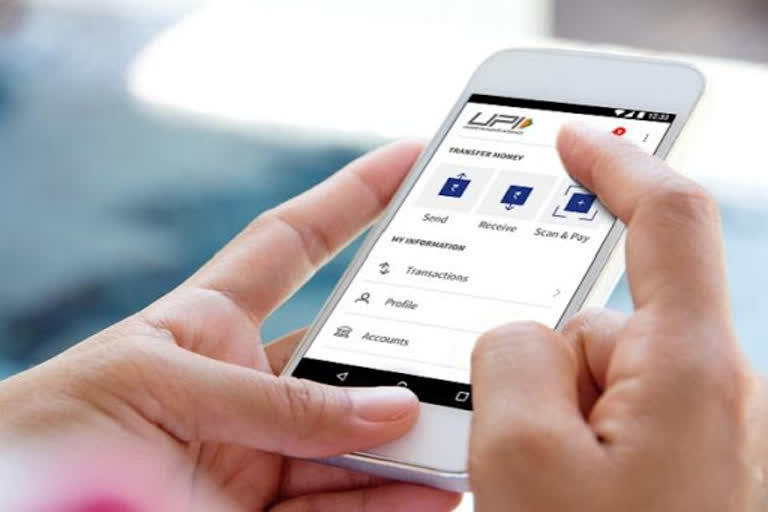Business Desk, ETV Bharat: In what could boost digital payments further in an economy that is slowly moving away from cash, the government earlier this week reiterated that banks cannot charge customers for Unified Payments Interface (UPI)-based transactions.
This implies that customers using UPI facility for payments or money transfer can fulfil the transactions without bearing any additional transaction cost. Also, in case they have paid any such charges on UPI transactions done so far this year, they would receive a refund of that fee in their bank accounts by the respective lenders.
In a circular released this week, the Central Board of Direct Taxes (CBDT) has directed banks to return to customers and merchants any fees levied for making UPI transactions in 2020.
“Banks are… advised to immediately refund the charges collected, if any, on or after January 1, 2020, on transactions carried out using the electronic modes… and not to impose charges on any future transactions carried through the said prescribed modes,” the circular said.
But why was there a confusion on charges? And what exactly led to the CBDT’s circular? Read here to know details:
What is the core issue?
In order to promote digital payments, Finance Minister Nirmala Sitharaman in December 2019 had announced that no MDR charges will be applicable on transactions through RuPay and UPI platforms beginning 1 January 2020. MDR, or merchant discount rate, is the cost paid by a merchant to a bank for accepting payment from their customers via digital means.
However, some private banks were reportedly charging a fee on UPI peer-to-peer (P2P) payments (or money transfers) against the prescribed norms.
How could banks charge a fee if it is against the law?
A report published by Ashish Das of IIT Bombay claims that banks are interpreting the law as per their convenience to conclude that while ‘UPI payments’ are free, transfers can be charged.
The report explains that this interpretation would mean that if a user decides to use UPI to split a restaurant bill, payment to the restaurant will qualify to be a free transaction, but the transfer of money among friends would not.
How much were banks charging on UPI P2P transactions?
Private banks like HDFC Bank, Axis Bank, ICICI Bank and Kotak Mahindra Bank said on their websites that customers could only make up to 20 free UPI peer-to-peer transactions, beyond which they would be charged Rs 2.5 to Rs 5 per transaction depending on the transaction amount, excluding GST.
So, for instance, Kotak Mahindra Bank was charging Rs 2.5 per UPI transaction involving amount of up to Rs 1,000 and Rs 5 on transaction amount of over Rs 1,000. Moreover, the rate it charges may increase with the increase in number of transactions.
When were the charges on UPI P2P transactions introduced?
Private banks started levying these charges during the lockdown months when the number of transactions increased manifold due to stress on contact-less payments. While ICICI Bank and HDFC Bank started levying these charges from 3 May 2020, Axis Bank and Kotak Mahindra Bank introduced charges from 1 June 2020 and 1 April 2020, respectively.
How are banks justifying these charges?
Private banks reportedly say that they have introduced these charges to prevent frivolous UPI transactions. Notably, some apps are incentivizing money transfers among people through rewards and benefits, which is reportedly leading to customers sending money back and forth among themselves, creating burden on the payment system.
Importantly, banks and National Payments Corporation of India (NPCI) have also been making several representations to the government this year seeking a reintroduction of MDR due to heavy losses and high cost of infrastructure deployment. NPCI estimates this at about Rs 2,000 crore for the payment industry.
What has CBDT said now?
In its latest circular, CBDT has clearly mentioned that such charges violate the law. The lenders are asked to stop all such impositions or face penal actions. CBDT has also mentioned that any cap on free UPI transactions is a breach of the PSS (payment and settlement systems) and IT Act.



